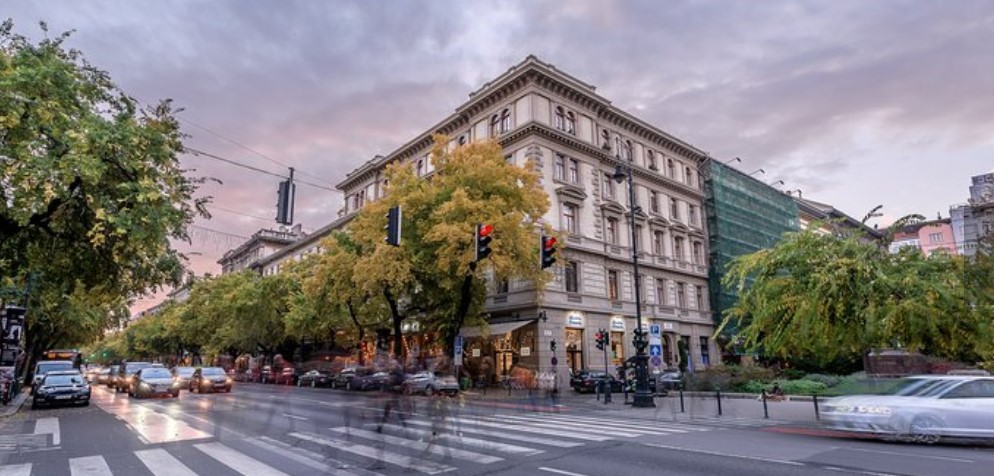A woman parked her car in Andrássy Avenue when a man approached her on Saturday afternoon, December 21 at 4:30pm in the 6th district of Budapest.
The migrant tore open the door, kicked the woman, and got in the car next to the driver’s seat of the parked car with its engine running. According to reasonable suspicion, the Syrian man called the woman in English to help him: “I’m a Muslim, help me!”
Then he started shouting in Arabic at the woman, who was in the car talking on the phone with her partner. Frightened, she got out and tried to run away and ask for help, but the man ran after her, pulled her back and struck her repeatedly in the face with his fist.
A passerby hurried to help the victim, but the helper was also attacked. The migrant hit him with his fist and then took her phone.
Another passerby saw it, and tried to stop the migrant, who eventually escaped from the scene.
The woman’s boyfriend called the police because he had heard over the phone that she was in trouble. Fortunately, the police arrived in minutes. Using a description of the perpetrator, the man was arrested at 5pm at the intersection of Dózsa György Street and Andrássy Street, and the woman’s phone was found on him.
The 25-year-old man of Syrian nationality had a German residence permit and a passport with him, so he has refugee status in Germany. He was taken to the district police station.
The Budapest Police Headquarters 6th District police investigators interrogated the 25-year-old man on suspicion of robbery, then arrested him.
According to the primary medical opinion, the victim and the man who helped her suffered injuries that will only heal within eight days.
The woman’s phone was returned to her.
The Metropolitan Prosecutor’s Office has proposed that the migrant be arraigned by the investigating judge.
In a Hungarian news report, the current exodus of Germans to Hungary, was highlighted. The expatriates from Angela Merkel’s “multicultural paradise” interviewed for this report said they were seeking refuge from the violence and degradation that immigration has brought to their home country.
One of them, Tanya Weber celebrated this Christmas in Hungary. Three months ago she moved to Zalakomár, a western village close to the Austrian border]. “In Germany I was always afraid; I already felt fear when I heard steps behind me in the street,” Weber told Hungarian broadcaster M1.
Once somebody was following her, but she was able to flee into her home. But recently she almost fell victim to migrant violence once again. “Not long ago I almost became a victim of rape. Three Syrian migrants were the perps. I wanted to sell a sofa; that is how they came to be in contact with me.
“But I still can’t talk about the details. I wanted to press charges with the police, but I was told I had no chance because all three would be testifying against me,” she says, adding that was when she decided that as soon as possible she would be leaving Germany. “I would like to live in peace, safety and happiness,” she added.
Another German expat, Stephan Richter previously worked in the personal protection industry. In early 2015 he thought the mass migration would have unpredictable consequences.
“Germany is on its way to Islamisation. The government can’t — or more likely does not want to — protect the population,” he said. He also talked about the fact that it is clear that the economy was getting worse in his home country with thousands losing their jobs.
In the meantime the politicians state that there is a labour shortage, and that is why the mass migration is required, he added.













No comments.
By submitting a comment you grant Free West Media a perpetual license to reproduce your words and name/web site in attribution. Inappropriate and irrelevant comments will be removed at an admin’s discretion. Your email is used for verification purposes only, it will never be shared.